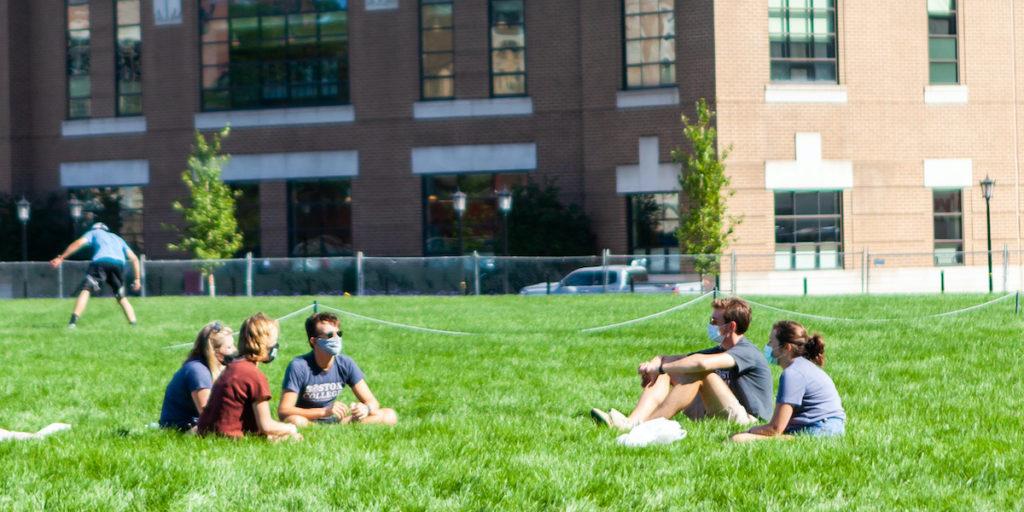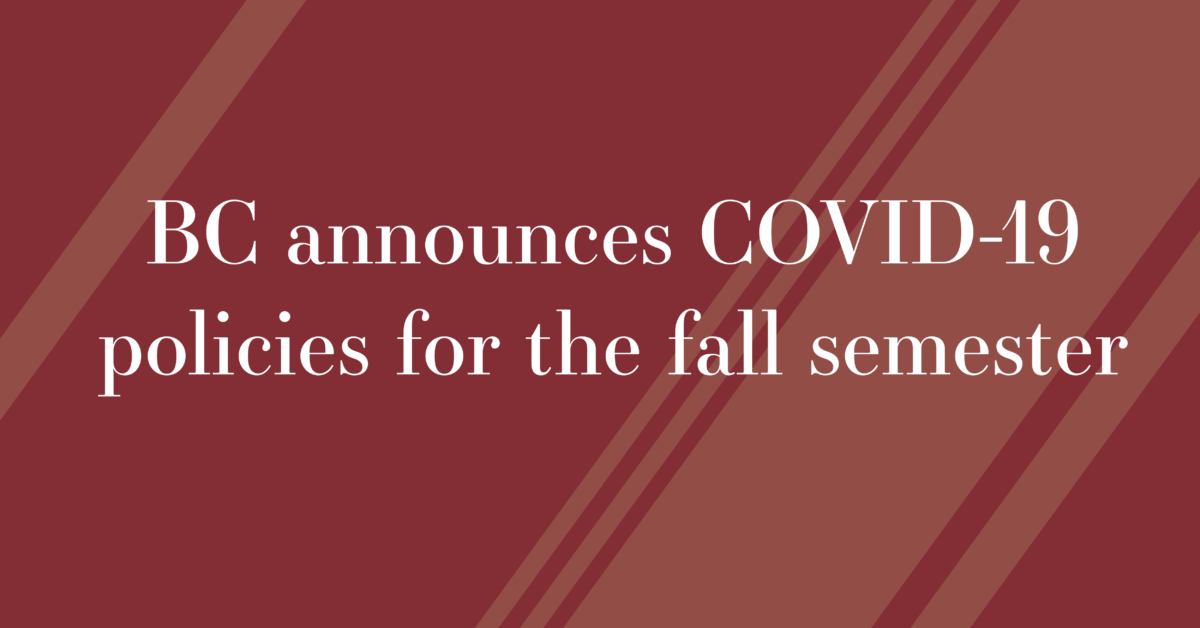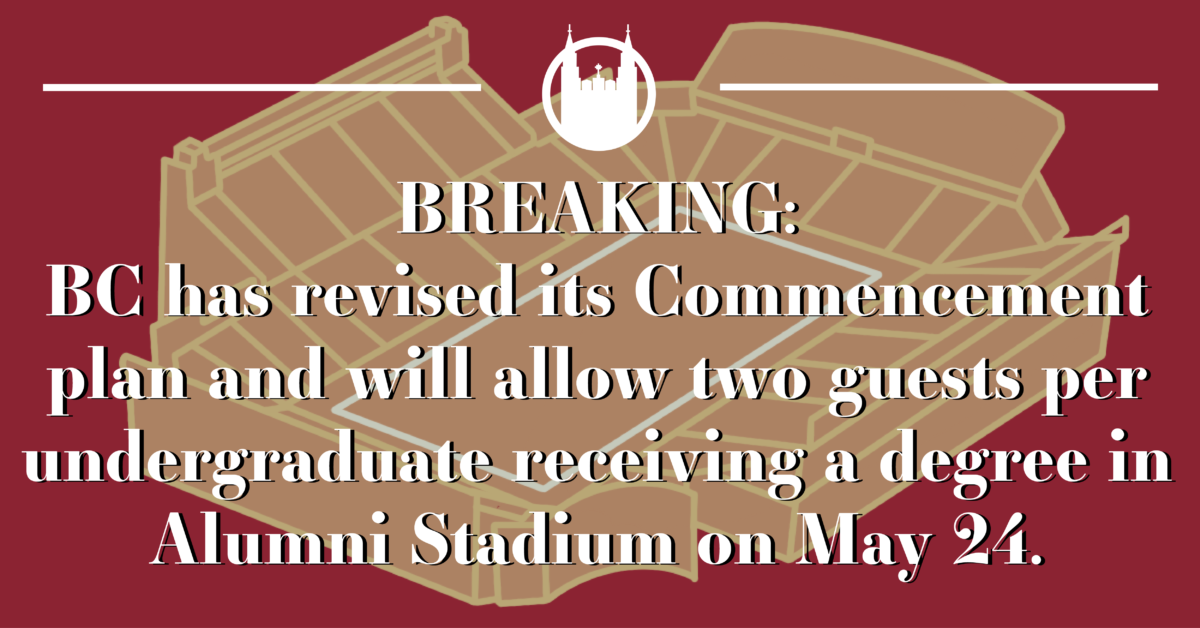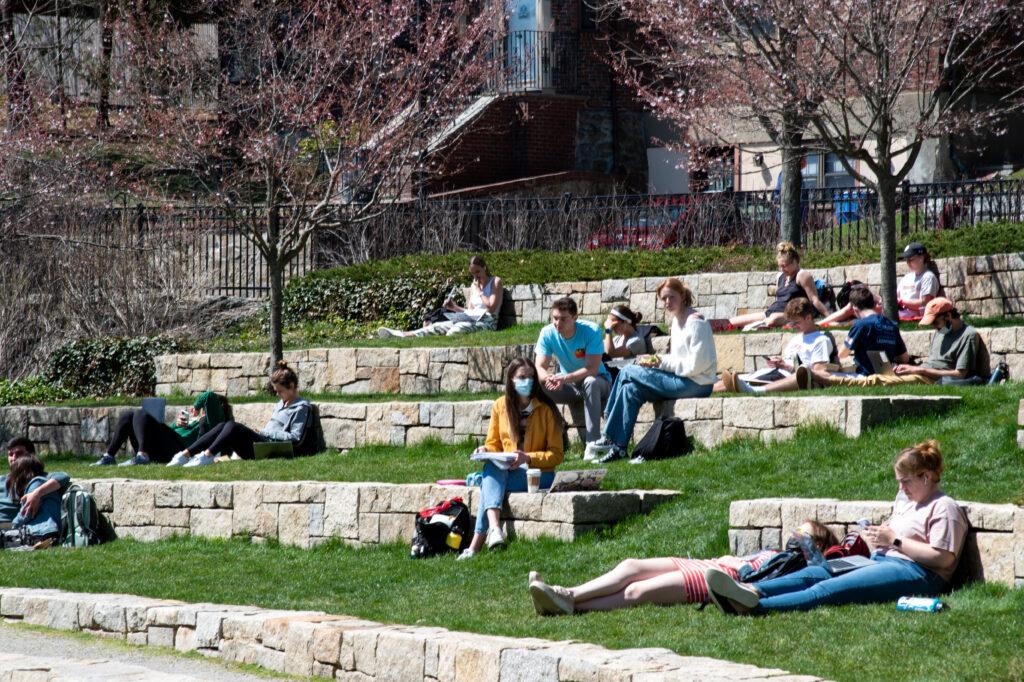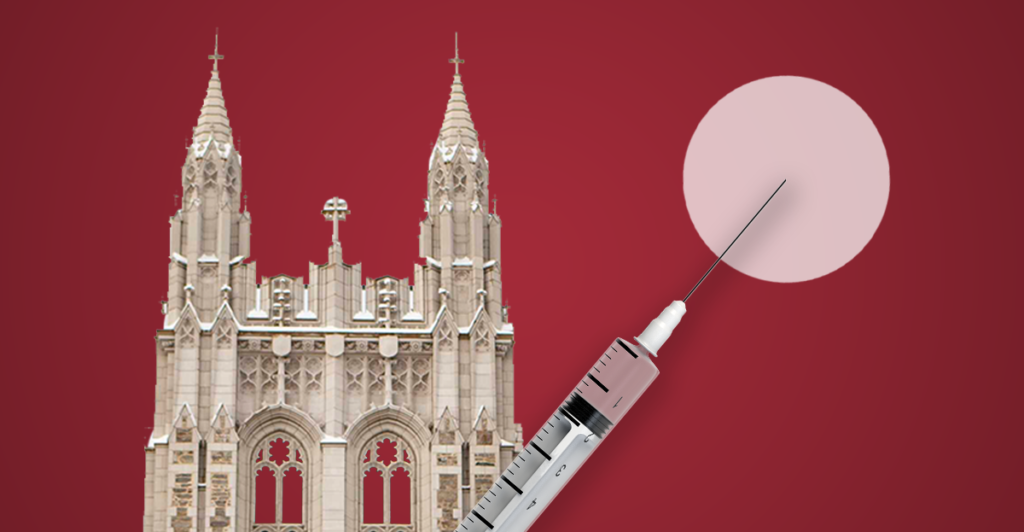BC began weekly asymptomatic surveillance testing on Wednesday. The University is randomly selecting students, faculty, staff, and other community members to be tested each week—but those in high-contact groups are being tested at a higher rate, according to an email the University sent to students on Friday.
These high-contact groups include residential life, BC Dining, University Health Services, the Margot Connell Recreation Center, and Facilities Services.
This week’s testing numbers include those selected for asymptomatic surveillance testing, students who were still arriving on campus this week, and students from high-risk states and countries receiving a mandatory second test, according to information on the BC website.
BC will be conducting at least 1,500 of asymptomatic surveillance tests per week, but has the ability to increase testing as needed, Associate Vice President for Student Engagement and Formation Tom Mogan said in Friday’s email.
Other local schools, including Boston University and Northeastern University, are conducting thousands of weekly tests. BU will be conducting 5,000 to 6,000 tests per day with an undergraduate population of 17,286, while Northeastern is testing every returning student once every three days.
In the two weeks prior to classes, nine BC undergraduates tested positive out of 8,371 who were tested, while this week 18 undergraduates tested positive out of 3,168 tested.
The Centers for Disease Control does not recommend entry testing all students returning to higher-education institutions, as there have been no systematic studies determining whether this practice is helpful. But the CDC has said that colleges in areas of moderate to substantial community spread may want to consider asymptomatic testing of some or all students.
The Yale School of Public Health, however, published a report in late July saying that schools need to test all students every two to three days in order to safely reopen.
“You cannot move swiftly enough to contain an outbreak if you wait until you see symptoms before you respond,” co-author Amy Zheng of Harvard Medical School said in a release. “This virus is too readily transmitted by highly infectious, asymptomatic, ‘silent spreaders,’ especially if there might be sporadic parties that lead to outbreaks.”
Neither Director of University Health Services Douglas Comeau nor Associate Director of UHS Scott Jusseaume responded to inquiries from The Heights about the University’s testing procedures and the increase in the positivity rate for undergraduates.
Twenty-four undergraduates are in isolation as of Friday, with 10 in BC’s isolation housing and 14 recovering at home, according to the dashboard. Twenty-seven undergraduates have tested positive since BC began testing on Aug. 16.
Nine of the positive cases stem from one group of friends living together, Mogan said in Friday’s email. Mogan reminded students to continue practicing social-distancing guidelines even after having tested negative.
“We cannot emphasize enough the importance of mask wearing and physical distancing, even when with friends. … From one single group of friends living together, we currently have 34 undergraduates in quarantine and 9 in isolation as positive cases,” Mogan wrote. “Please wear your mask and maintain physical distance to protect yourself, your fellow BC community members, and the community around us.”
Classes began on Monday under BC’s hybrid model of course instruction, which includes a combination of online and in-person classes. BC has de-densified classrooms and placed social-distancing markings on the floors, and students and faculty are required to wear masks at all times during in-person instruction.
BC is currently using an online application for students to self-report their symptoms, and students are occasionally required to display that they have been cleared before entering some on-campus sites, including dining halls, the Margot Connell Recreation Center, and libraries. BC had originally planned to use an app called CoVerified for scheduling testing appointments and self-reporting symptoms, but it was unable to debut the app in time for the fall semester.
Featured Image by Jess Rivilis / Heights Editor

